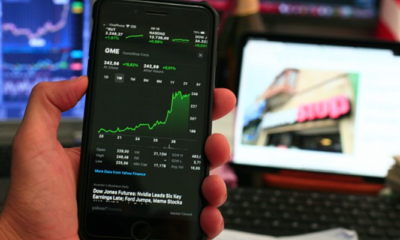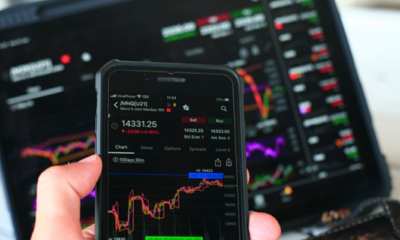Financial Markets
Financial Market

A financial market is an environment where individuals trade derivatives and financial securities at low transaction fees. Some of these securities include futures and options, stocks and bonds, financial instruments such as precious metals and agricultural commodities, that are calling underlying commodities in the financial markets. Financial markets also include market participants who facilitate transactions by carrying trades on margin. There are two types of financial markets, foreign exchange, and the interbank market.
A derivative is a contract or agreement between two parties concerning the conditions of sale, purchase, exchange, and payment of money. One example of a derivative is the Futures contract. Among the most popular financial instruments traded on the commodity market are energy derivatives, interest rate derivatives, and credit default swaps. The commodity market is highly leveraged; hence the term “commodity market”.
Financial markets are characterized by fluctuations in value during trading hours. During the trading day, financial assets are traded in numerous stock exchanges. After hours, trading in financial assets is completed through the Offered Fund Market, and one year later, the next trading day takes place in the inter-bank market. The main differences between the two markets are that in the market for inter-bank instruments, trading is not done electronically, whereas in the market for short-term debt instruments trading is done electronically. Financial instruments in the financial markets can be either long term or short term.
One of the most widely traded financial instruments in the markets is the U.S. Dollar Index. Among all the currencies, the U.S. Dollar Index is the only index that is traded actively by individual traders. Bond yields are also traded in the financial markets; daily, various institutions sell or buy bonds in the secondary market. Short-term debt instruments such as CDs and other interest-bearing securities are also traded in the financial markets.
A major part of the financial market, financial products are sold or purchased based on contract prices. Contracts for difference (CADs), for example, are financial products whose selling price is determined at the time of contract purchase. When traders buy or sell financial products on the secondary market, they are usually represented by dealers who have access to a variety of financial products. To buy and sell financial products in the inter-bank market, traders must have a standing agreement between themselves. The two parties may decide to enter into a long-term arrangement, a short-term agreement, or a combination of both agreements.
One of the most important factors determining the success of the financial market is the availability of credit. The availability of credit determines the viability of the financial market, as well as the amount of money that can be raised by various types of financial institutions. Credit is granted by banks to businesses seeking to expand their business operations. The availability of credit determines the liquidity of the secondary market and determines the interest rates that banks charge on loans.

























